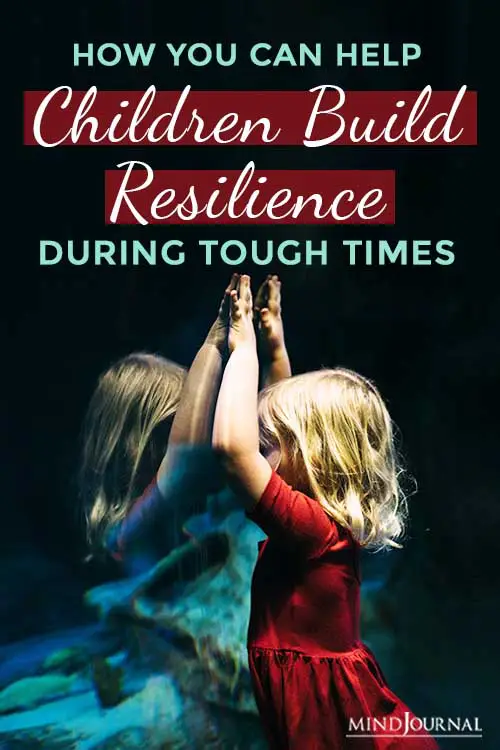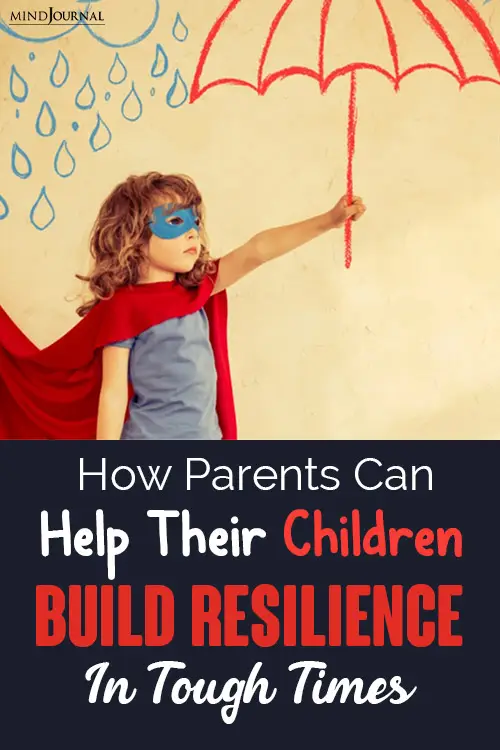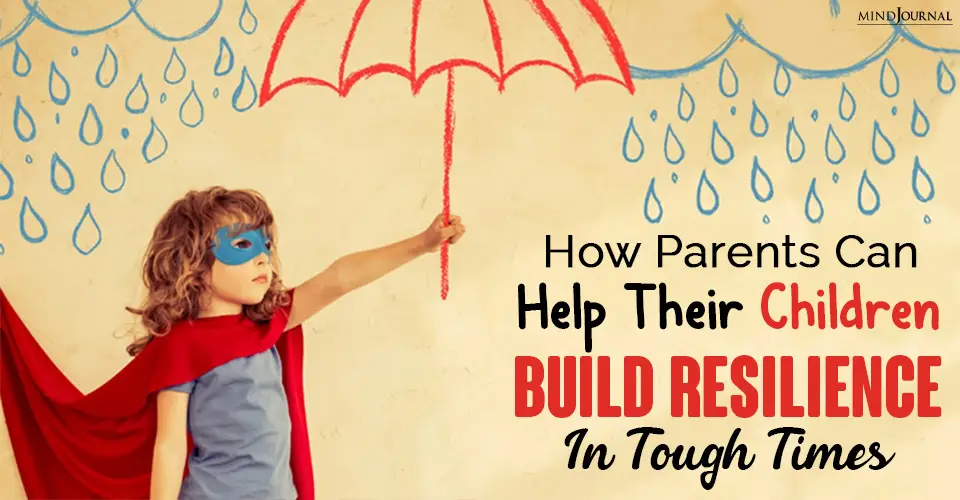Resilience is something even grown-ups struggle with at times, so can you imagine how children feel when they face difficulties and trauma? Children do not possess the experience and mental strength that grown-ups do, which is why they will naturally need more help and support when it comes to being resilient.
It doesn’t take a Ph.D. to recognize that life can be hard. Many of us have dealt with some kind of life event that has made us feel like we couldn’t get up in the morning, or that some goal we wanted to achieve was utterly impossible. Some of these difficult times pass by and we move on. But others leave us with obstacles that seem insurmountable, or with tragedies that are impossible to recover from.
Those especially hard times are even harder when they happen to children. Because our brains are still developing well into our 20s, if children meet with adversity when they are young, it can leave a mark, affecting the way their brains and their subsequent cognitive and emotional abilities develop.
Not surprisingly, researchers and clinicians have taken a vested interest in how adversity affects infants, children, and adolescents, looking for ways in which we can help them cope with those difficult times. There are lots of things that can make life harder for children, including divorce, a death in the family, poverty, severe prematurity, trauma, or physical abuse.
Risk factors like these have been associated with a variety of negative outcomes for children, including lower academic achievement, emotional problems, limited career advancement, and even trouble with the law (Masten, Best, & Garmezy, 1990).
Related: How Reading Science Fiction Can Build Resilience In Kids
One of the main ways researchers have tackled this issue is not just by studying the kids who are hit the hardest by adversity, but by also studying the kids who fare quite well, regardless of hard times—or the kids who are resilient.
Resilience is someone’s ability to become successful or competent despite having to overcome some life stressor (Masten, Best, & Garmezy 1990).
Researchers have studied resilience in hopes of finding out what factors can help kids succeed even when the odds are stacked against them, and have found that there are some consistent predictors of what it takes to help children overcome adversity.
First of all, like with many things, smarts help. Intelligence is related to better problem-solving skills and the development of better coping strategies, which helps children flexibly deal with obstacles (Masten, Best, & Garmezy 1990).
There are similar relations for what psychologists call executive function, which includes skills like paying attention, being able to switch between one task to another, and controlling your impulses, especially those impulses to do things with less benefit in the short term (e.g., eating that last chocolate chip cookie) in favor of things that will have bigger benefits in the long-term (e.g., being healthy or losing weight) (Masten, 2015). Executive function skills like these are related to doing better in school, and also happen to be great predictors of resilience.
But (lucky for many of us) having smarts isn’t the only thing that matters. The motivation to solve problems and the self-confidence to try new things are also important predictors of resilience. Likewise, having a growth mindset—or the drive to learn for the sake of acquiring a new skill—is also related to resilience (Masten, Best, and Garmezy 1990). Being able to control your emotional responses to stressors also helps.
In fact, a recent study of children between the ages of 8 to 17 with a history of maltreatment showed that children who were better able to regulate or control their emotional responses to negative events were less likely to suffer from emotional problems, like depression (Rodman et al., 2019).
Most importantly, the single best predictor of resilience is not being smart, or motivated, or confident, it’s having a loving parent or caregiver to help you along the way (Masten, Best, and Garmezy 1990). And it doesn’t just apply to parents—having close friends, romantic partners, supportive teachers, good neighborhoods, and even being part of a church community are all related to resilience (Masten, 2015).
Research suggests that physical comfort from a loved one alone reduces children’s distress. A loving embrace can reduce stress hormones like cortisol in the body (Feldman, Singer, and Zagoory, 2010) and even lower heart rate (Ludington and Hosseini, 2005). Further, children who receive touch therapy after experiencing stress from trauma are happier, less anxious, and have lower stress hormone levels than children who do not get touch therapy (Field, Seligman, Scafidi, and Schanberg, 1996).
Related: 8 Ways To Cultivate Resilience In Yourself During Tough Times
Physical touch itself isn’t even necessary for the support of a caregiver to effectively reduce children’s stress responses—the mere presence of a child’s mother can be enough to do the trick. The part of the brain that is most active when we are afraid or stressed—the amygdala—isn’t as active in children when their mothers are present as when they are absent (Gee et al., 2014).
Further, there is evidence that the amygdala is activated more quickly and more easily in children who are in foster care—children who don’t have a mother in close proximity (Gee et al., 2013). In fact, children who don’t have parents at all—children who were raised in orphanages—who form secure attachments to their foster care families are less likely to develop anxiety, depression, and other psychological problems when compared to children who don’t develop these relationships (McGoron et al., 2012; McLaughlin, Zeanah, Fox, and Nelson, 2012).
Altogether, this research suggests that a mother’s presence can actually protect a child’s brain from the negative impact of stress. Strong relationships like these can provide children with support when things get hard, and good teachers and community groups can provide children with a means to build problem-solving skills and motivation to persevere even when times are tough.
Of course, sometimes we can’t protect children from every risk factor they may face: Parents get divorced, children grow up in poverty, and many of them experience trauma. But doing what we can to eliminate as many risk factors as possible can also help protect children from negative outcomes and boost resilience.
For example, when parents get divorced, their children do better when their parents move through the process amicably with less conflict, so there are things we can do when risks are inevitable (Masten, Best, and Garmezy 1990). The trouble is, many children who face risk don’t just face one. Poverty, for example, is associated with many different kinds of risks, including less social support, more stress, less money, more crowding, poorer education, greater likelihood of abuse, less parental competence, and possibly even lower nutrition, less access to health care, parks, and even clean water (e.g., Sameroff, Seifer, Zax, and Barocas, 1987).
Related: 5 Ways To Build Emotional Intelligence and Resilience In Kids Right Now
Ann Masten—one of the pioneers of resilience research in developmental psychology—has referred to resilience as “ordinary magic” (Masten, 2015). By that, she means that resilient kids don’t have some kind of superpower that helps them persevere while others flounder. Resilience is not a trait—it’s not something you’re born with, it’s something you can foster. Making sure children have supportive relationships is a great first step.
Having a competent parent and a good support system that includes family members, community members, and a good school can all help build the other things that are important for resilience, including self-esteem, self-efficacy, and emotion-regulation (Masten, Best, and Garmezy 1990).
Interventions can also help build these things, but since many children who face adversity often face multiple risk factors, reducing those risks is perhaps even more important. By doing whatever we can as individuals, community members, and citizens to reduce risk, we can help children be more successful, regardless of the ordinary magic of resilience.
References:
Feldman, R., Singer, M., & Zagoory, O. (2010). Touch attenuates infants’ physiological reactivity to stress. Developmental science, 13(2), 271-278. Field, T., Seligman, S., Scafidi, F., & Schanberg, S. (1996). Alleviating posttraumatic stress in children following Hurricane Andrew. Journal of applied developmental psychology, 17(1), 37-50. Gee, D. G., Gabard-Durnam, L. J., Flannery, J., Goff, B., Humphreys, K. L., Telzer, E. H., ... & Tottenham, N. (2013). The early developmental emergence of the human amygdala–prefrontal connectivity after maternal deprivation. Proceedings of the National Academy of Sciences, 201307893. Gee, D. G., Gabard-Durnam, L., Telzer, E. H., Humphreys, K. L., Goff, B., Shapiro, M., ... & Tottenham, N. (2014). Maternal buffering of human amygdala-prefrontal circuitry during childhood but not during adolescence. Psychological science, 25(11), 2067-2078. Ludington-Hoe, S. M., Hosseini, R., & Torowicz, D. L. (2005). Skin-to-skin contact (Kangaroo Care) analgesia for preterm infant heel stick. AACN Advanced Critical Care, 16(3), 373-387. Masten, A. S. (2015). Ordinary magic: Resilience in development. Guilford Publications. Masten, A. S., Best, K. M., & Garmezy, N. (1990). Resilience and development: Contributions from the study of children who overcome adversity. Development and Psychopathology, 2(4), 425-444. McGoron, L., Gleason, M. M., Smyke, A. T., Drury, S. S., Nelson III, C. A., Gregas, M. C., ... & Zeanah, C. H. (2012). Recovering from early deprivation: attachment mediates effects of caregiving on psychopathology. Journal of the American Academy of Child & Adolescent Psychiatry, 51(7), 683-693. McLaughlin, K. A., Zeanah, C. H., Fox, N. A., & Nelson, C. A. (2012). Attachment security as a mechanism linking foster care placement to improved mental health outcomes in previously institutionalized children. Journal of child psychology and psychiatry, 53(1), 46-55. Rodman, A. M., Jenness, J. L., Weissman, D. G., Pine, D. S., & McLaughlin, K. A. (2019). Neurobiological markers of resilience to depression following childhood maltreatment: The role of neural circuits supporting the cognitive control of emotion. Biological psychiatry, 86(6), 464-473. Sameroff, A. J., Seifer, R., Zax, M., & Barocas, R. (1987). Early indicators of developmental risk: Rochester Longitudinal Study. Schizophrenia Bulletin, 13(3), 383-394.
Written By Vanessa LoBue Originally Appeared In Psychology Today










Leave a Reply
You must be logged in to post a comment.